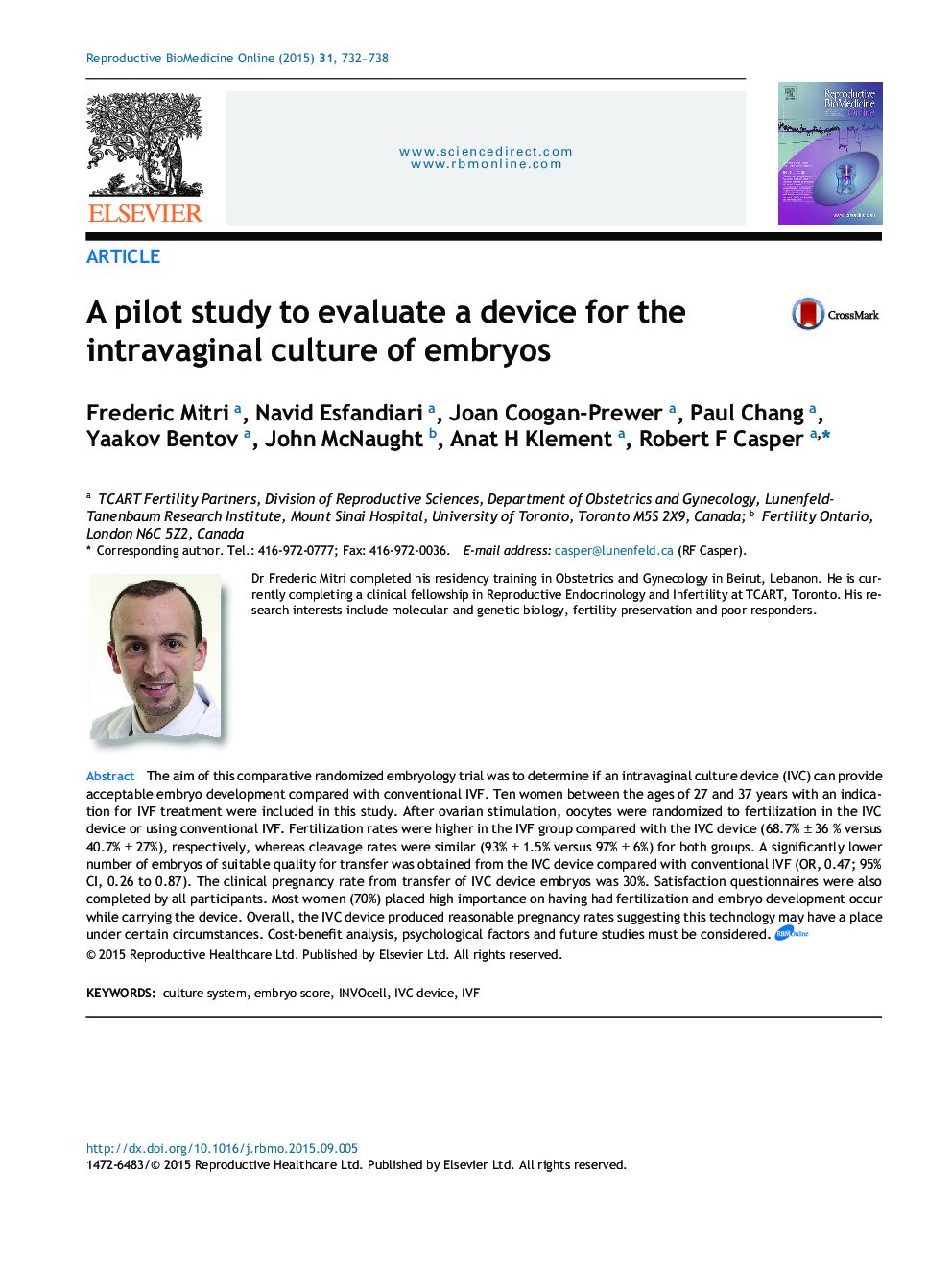| Article ID | Journal | Published Year | Pages | File Type |
|---|---|---|---|---|
| 6188708 | Reproductive BioMedicine Online | 2015 | 7 Pages |
The aim of this comparative randomized embryology trial was to determine if an intravaginal culture device (IVC) can provide acceptable embryo development compared with conventional IVF. Ten women between the ages of 27 and 37 years with an indication for IVF treatment were included in this study. After ovarian stimulation, oocytes were randomized to fertilization in the IVC device or using conventional IVF. Fertilization rates were higher in the IVF group compared with the IVC device (68.7% ± 36 % versus 40.7% ± 27%), respectively, whereas cleavage rates were similar (93% ± 1.5% versus 97% ± 6%) for both groups. A significantly lower number of embryos of suitable quality for transfer was obtained from the IVC device compared with conventional IVF (OR, 0.47; 95% CI, 0.26 to 0.87). The clinical pregnancy rate from transfer of IVC device embryos was 30%. Satisfaction questionnaires were also completed by all participants. Most women (70%) placed high importance on having had fertilization and embryo development occur while carrying the device. Overall, the IVC device produced reasonable pregnancy rates suggesting this technology may have a place under certain circumstances. Cost-benefit analysis, psychological factors and future studies must be considered.
